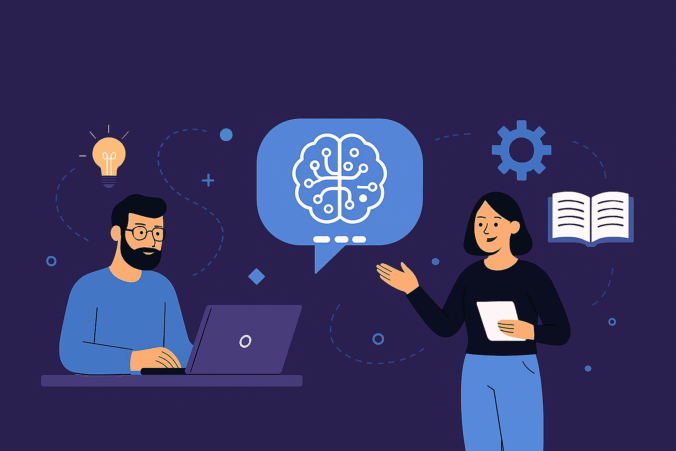Hi! I’m Jana-Sophie, a PhD student from TU Dortmund University in Germany, where I research sociotechnical work systems and how to meaningfully involve people with disabilities in developing suitable technologies for those systems.
This autumn it’s the first time that I actually step out of my own work system to explore a new one. I’m spending three months here at Uppsala University’s HTO Research Group. A perfect opportunity to experience another work environment and academic culture first-hand.
Now, a few weeks in, some early reflections are already taking shape. What better place to share them than here, as temporary part of the HTO research group and its blog?
The experience of arriving here was immediately both stepping out and coming home.
Stepping Out
Coming from rehabilitation sciences, my daily work in Dortmund usually revolves around teaching, supervision and research on inclusion – always with a focus on how technology can support participation at work. For three months, I’m now stepping out of that familiar academic setting and immerse in a new one. Being here at the HTO research group, where user involvement in technology design is a given, allows me to experience what it feels like when the disciplinary embedding shifts: While my subgroup at home adds an HCI view to rehabilitation research, here rehabilitation and inclusion perspectives become embedded in HCI. This change of perspectives makes the idea of interdisciplinary research much more tangible.
After two years in the German academic system, this visit feels like a rare and valuable opportunity to step back from usual daily tasks, challenge my assumptions and habits, and experience new ways of thinking and collaborating.
Coming Home
With a personal background in Human Computer Interaction (master studies), returning to its core theories, discussions, and methods feels both familiar and inspiring. Reconnecting with HCI and exchanging ideas with people who speak the same “research language” brings a sense of belonging and curiosity at the same time.
Beyond these broader concepts of leaving one’s habitual environment while immersing in a familiar disciplinary setting, there are also some more concrete aspects that I currently find especially rewarding:
- Inclusive Design or Non-Excluding Design? HCI or HMI? Coffee breaks or fika? 😊
It’s been a minute since I reflected on basic concepts I use and once defined in the very beginning of my PhD process. These terminologies and grounding concepts get challenged the second you leave your usual environment and that’s a good thing! It broadens my perspectives and sharpens my arguments.
- Time and opportunity to look up from my tiny research niche:
Having this time abroad with fewer responsibilities (or distractions?) is a wonderful chance. Usually, I’m deeply immersed in my daily tasks and my very specific research focus, involving people with disabilities and neurodivergent people in industrial development to improve accessibility in work-related technologies. Here, the freedom to present myself, my topic, and my project makes it easy to see connections to almost every person and project around me. It’s tempting, exciting… and also a challenge to define and stay true to my own path.
- Joining a PhD course, something that’s not part of my PhD journey at home, has been a refreshing experience. It’s the first time in a while that I’ve really dug into theories again, revisiting ideas I was once introduced to, had almost forgotten, and now see in a new light. It also helps me reflect on how my research is situated within HCI (or is it HMI?). Plus, meeting other PhD students here is definitely a big bonus.
So far, this visit feels both grounding and energizing: a mix of revisiting familiar ideas and exploring new perspectives that already inspire me and my research. I’m curious to see how the next weeks will unfold, which collaboration opportunities might arise, and how my idea of coffee as a quick caffeine fix might slowly turn into coffee as a proper fika moment.


